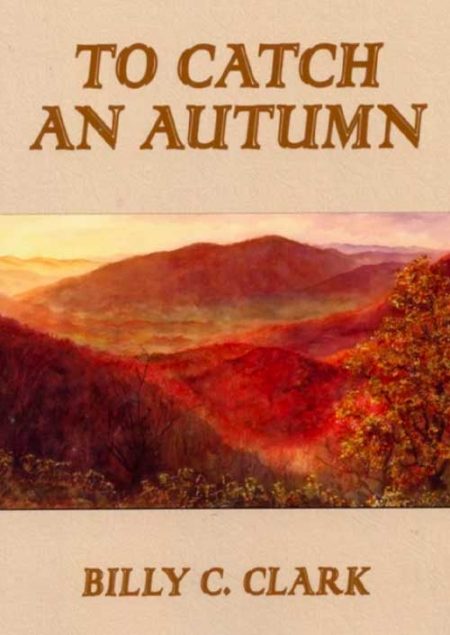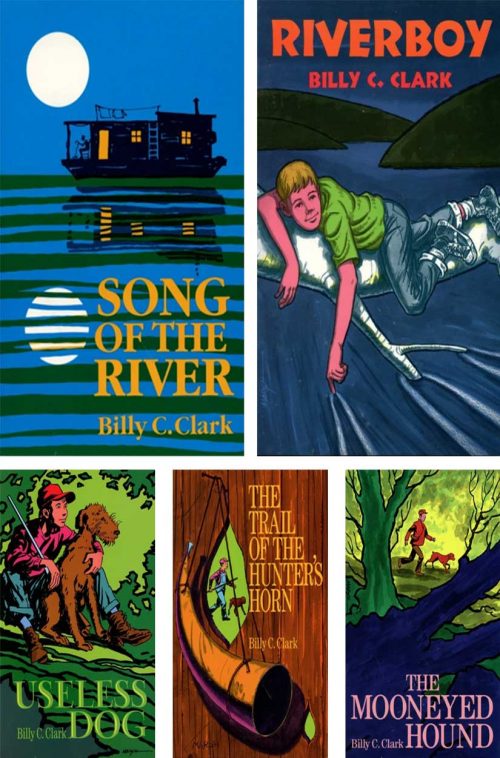-
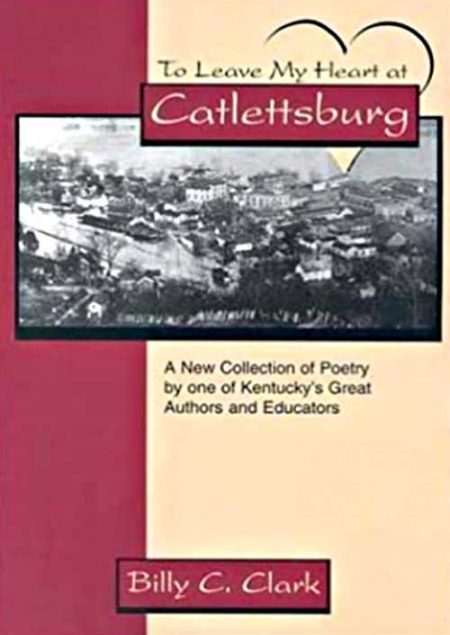 This sense of appreciation for earth and its creatures runs through all of the poems in To Leave My Heart at Catlettsburg and results in a poignant literacy tribute, a gift to a town and its people. Beyond that, this book reminds all readers to observe the world more carefully and to listen more sensitively, to be more alive to the beauty and sturggles around us, to be more grateful for passing through. By Billy C. Clark
This sense of appreciation for earth and its creatures runs through all of the poems in To Leave My Heart at Catlettsburg and results in a poignant literacy tribute, a gift to a town and its people. Beyond that, this book reminds all readers to observe the world more carefully and to listen more sensitively, to be more alive to the beauty and sturggles around us, to be more grateful for passing through. By Billy C. Clark -
Out of stock
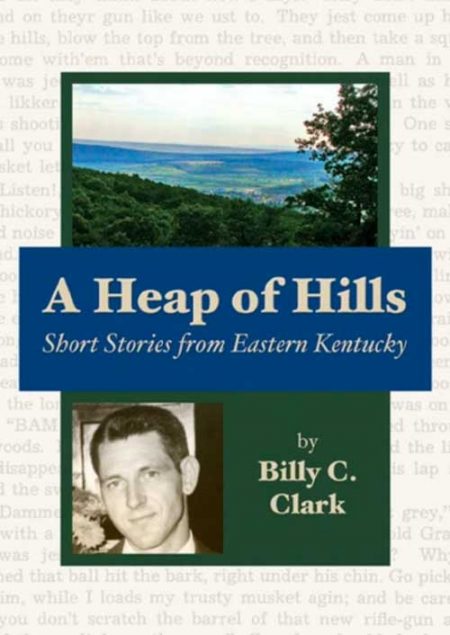 SOFTBACK By Billy C. Clark
SOFTBACK By Billy C. Clark -
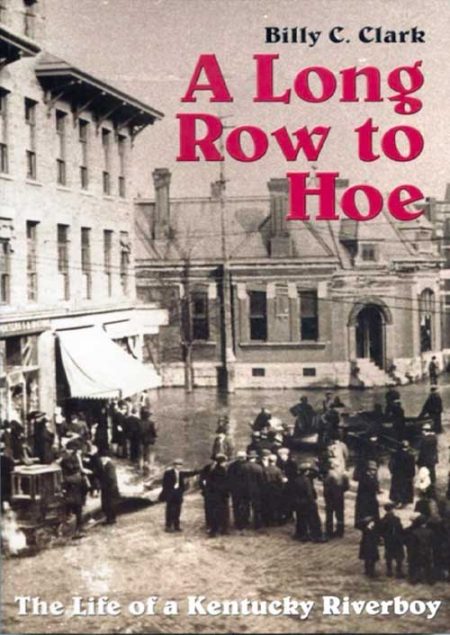 Boston University, the site of the world’s finest repository of 20th Century literature, praises Billy C. Clark as “one of the South’s most distinguished writers.” In this fascinating and highly readable book, Clark, founder and editor of Virginia Writing, writes of his own astonishingly primitive childhood in an Appalachian river town, Catlettsburg, Kentucky, at the junction of the Big Sandy and the Ohio Rivers. Billy C. Clark was a member of a sprawling, ragged family. His father was an intelligent, fiddle-playing shoemaker with little formal education. His mother often took in washing to help provide food for the family. Billy grew up in a derelict house, “The Leaning Tower,” on the banks of the Ohio. Always hungry, often dirty, and without sufficient clothing, he led an adventurous life on the two rivers, swimming, fishing, and salvaging flotsam from the frequent floods. He set trout lines for fish and trap lines for mink and muskrats, and he walked fourteen miles before school to clear his traps. He learned laughter from his magnificent mother and wisdom from his father, who taught him that “poor folks have a long row to hoe….” Billy was the only one of his family to seek an education, and through his traps, his river salvage, and odd jobs, he earned money to put himself through school. The book ends with a powerful account of his parents’ pride at his graduation. Time Magazine said that this book is “as authentically American as Huckleberry Finn.” It is a touching account of a boy and two rivers. It is a must for public and school libraries, or anyone interested in Appalachian history or literature. By Billy C. Clark
Boston University, the site of the world’s finest repository of 20th Century literature, praises Billy C. Clark as “one of the South’s most distinguished writers.” In this fascinating and highly readable book, Clark, founder and editor of Virginia Writing, writes of his own astonishingly primitive childhood in an Appalachian river town, Catlettsburg, Kentucky, at the junction of the Big Sandy and the Ohio Rivers. Billy C. Clark was a member of a sprawling, ragged family. His father was an intelligent, fiddle-playing shoemaker with little formal education. His mother often took in washing to help provide food for the family. Billy grew up in a derelict house, “The Leaning Tower,” on the banks of the Ohio. Always hungry, often dirty, and without sufficient clothing, he led an adventurous life on the two rivers, swimming, fishing, and salvaging flotsam from the frequent floods. He set trout lines for fish and trap lines for mink and muskrats, and he walked fourteen miles before school to clear his traps. He learned laughter from his magnificent mother and wisdom from his father, who taught him that “poor folks have a long row to hoe….” Billy was the only one of his family to seek an education, and through his traps, his river salvage, and odd jobs, he earned money to put himself through school. The book ends with a powerful account of his parents’ pride at his graduation. Time Magazine said that this book is “as authentically American as Huckleberry Finn.” It is a touching account of a boy and two rivers. It is a must for public and school libraries, or anyone interested in Appalachian history or literature. By Billy C. Clark -
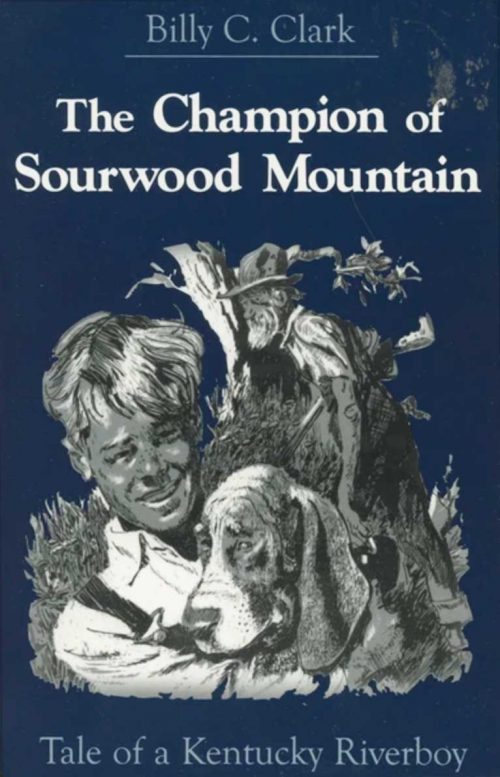 The people, the lore, even the sounds of eastern Kentucky come vividly to life in this affectionate story of a boy and his search dog. In the shadow of Sourwood Mountain, fourteen-year-old Aram Tate is absorbed in the sometimes painful process of growing up. His all-consuming passion is to own a hound dog of his very own, and his efforts to achieve this dream involve him in a series of amusing adventures which broaden his boy's-eye view of the world. Through his friendship with ne'er-do-well Eb ringtom, Aram Learns the ways of men as they never were described in books. Among the other colorful characters who contribute to the boy's education are Lighting and Napoleon, two imcomparably wily gamecocks; Thusla, Eb's great hound whose exploits can only be described as apocryphal; and Rile Feder and his dog, the bluetick Tweedle, who fears neither coon nor fox. SOFTBACK By Billy C. Clark
The people, the lore, even the sounds of eastern Kentucky come vividly to life in this affectionate story of a boy and his search dog. In the shadow of Sourwood Mountain, fourteen-year-old Aram Tate is absorbed in the sometimes painful process of growing up. His all-consuming passion is to own a hound dog of his very own, and his efforts to achieve this dream involve him in a series of amusing adventures which broaden his boy's-eye view of the world. Through his friendship with ne'er-do-well Eb ringtom, Aram Learns the ways of men as they never were described in books. Among the other colorful characters who contribute to the boy's education are Lighting and Napoleon, two imcomparably wily gamecocks; Thusla, Eb's great hound whose exploits can only be described as apocryphal; and Rile Feder and his dog, the bluetick Tweedle, who fears neither coon nor fox. SOFTBACK By Billy C. Clark -
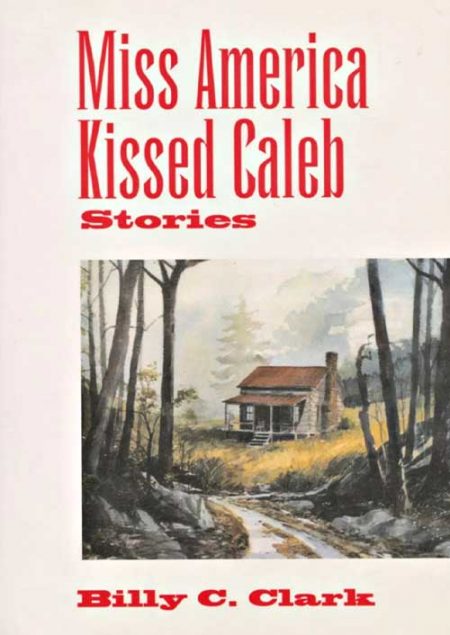 The mountain is a lonely place. Welcome to Sourwood, a small Kentucky town inhabited by men and women unique and yet eerily familiar. Among its joyful and tragic citizens we meet the crafty, spirited Caleb and his curious younger brother; Pearl, a suspected witch, and her sheltered daughter, Thanie; superstitious Eli; and the doomed orphan Girty. In Sourwood, the mountain is both a keeper of secrets and an imposing, isolating presence, shaping the lives of all who live in its shadow. Strong in both the voice and sensibilities of Appalachia, the stories in Miss America Kissed Caleb are at turns heartbreaking and hilarious. In the title story, young Caleb turns over his hard-earned dime to the war effort when he receives a coaxing kiss from Miss America, who sweeps into Sourwood by train, "pretty as a night moth." Caleb and his brother share in the thrills and uncertainties of growing up, making an accidental visit to a brothel in "Fourth of July" and taming a "high society" pooch in "The Jimson Dog." These stories invoke a place and a time that have long passed―a way of living nearly extinct―yet the beauty of the language and the truth revealed in the characters' everyday lives continue to resonate with modern readers. By Billy C. Clark
The mountain is a lonely place. Welcome to Sourwood, a small Kentucky town inhabited by men and women unique and yet eerily familiar. Among its joyful and tragic citizens we meet the crafty, spirited Caleb and his curious younger brother; Pearl, a suspected witch, and her sheltered daughter, Thanie; superstitious Eli; and the doomed orphan Girty. In Sourwood, the mountain is both a keeper of secrets and an imposing, isolating presence, shaping the lives of all who live in its shadow. Strong in both the voice and sensibilities of Appalachia, the stories in Miss America Kissed Caleb are at turns heartbreaking and hilarious. In the title story, young Caleb turns over his hard-earned dime to the war effort when he receives a coaxing kiss from Miss America, who sweeps into Sourwood by train, "pretty as a night moth." Caleb and his brother share in the thrills and uncertainties of growing up, making an accidental visit to a brothel in "Fourth of July" and taming a "high society" pooch in "The Jimson Dog." These stories invoke a place and a time that have long passed―a way of living nearly extinct―yet the beauty of the language and the truth revealed in the characters' everyday lives continue to resonate with modern readers. By Billy C. Clark -
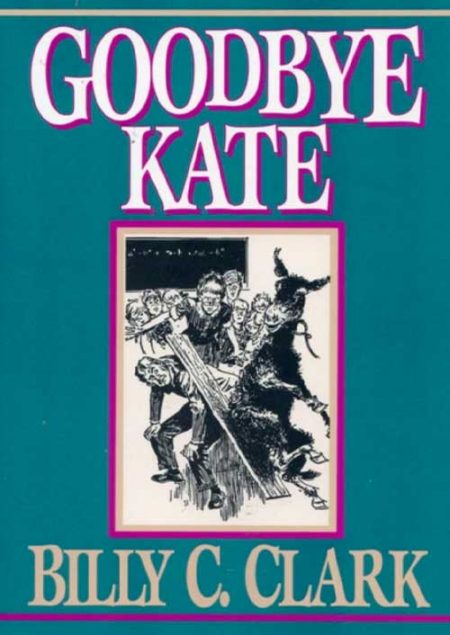 Goodbye Kate, Billy C. Clark’s sixth novel, is based in part on a mule he once owned. In the novel, Kate is found far back in the hills by a lonely country boy named Isaac Warfield. He lives close enough to Tatesburg, the nearest town, to walk to school there, but it’s a small town, and his home is isolated. Isaac has graduated from the little country school he has attended and the other members of his class will be moving on to another school, or to no school at all. He won’t have much contact with his friends anymore, and the nearest neighbor, a money-hungry man named Simm Johns, has no children and is “mean as a striped snake.” Isaac finds Kate when he goes back into the hills to pick some blackberries for his mother. The little mule is apparently as lonely as Isaac is, and she adopts him and follows him home – as far as the pine grove above the house, that is. By Billy C. Clark
Goodbye Kate, Billy C. Clark’s sixth novel, is based in part on a mule he once owned. In the novel, Kate is found far back in the hills by a lonely country boy named Isaac Warfield. He lives close enough to Tatesburg, the nearest town, to walk to school there, but it’s a small town, and his home is isolated. Isaac has graduated from the little country school he has attended and the other members of his class will be moving on to another school, or to no school at all. He won’t have much contact with his friends anymore, and the nearest neighbor, a money-hungry man named Simm Johns, has no children and is “mean as a striped snake.” Isaac finds Kate when he goes back into the hills to pick some blackberries for his mother. The little mule is apparently as lonely as Isaac is, and she adopts him and follows him home – as far as the pine grove above the house, that is. By Billy C. Clark -
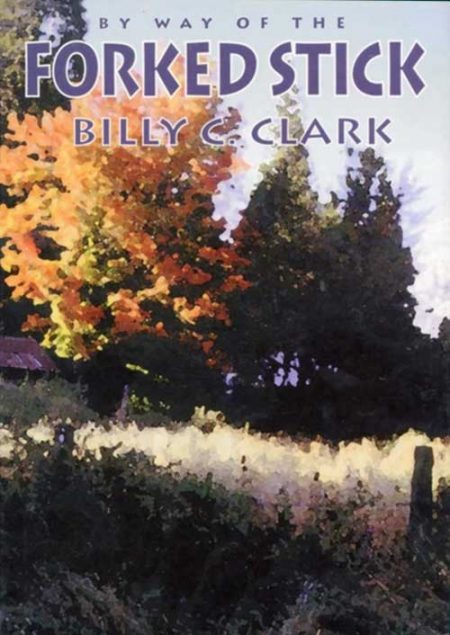 In the little Appalachian town of Sourwood, life at the end of the Great Depression may have been tough, but it was rich beyond compare. Building on a distinguished body of work celebrating and preserving mountain culture, renowned writer Billy C. Clark once again revisits his boyhood during a bygone era. By Way of the Forked Stick offers four fictional stories drawn from the author's childhood experiences of the 1930s—tales that vividly convey the down-home spirit of a lost way of life. By Billy C. Clark
In the little Appalachian town of Sourwood, life at the end of the Great Depression may have been tough, but it was rich beyond compare. Building on a distinguished body of work celebrating and preserving mountain culture, renowned writer Billy C. Clark once again revisits his boyhood during a bygone era. By Way of the Forked Stick offers four fictional stories drawn from the author's childhood experiences of the 1930s—tales that vividly convey the down-home spirit of a lost way of life. By Billy C. Clark


